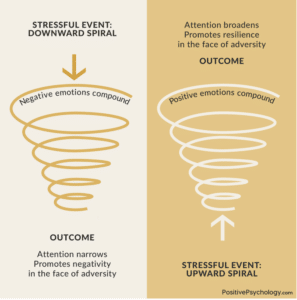
Have we ever stopped to ask ourselves if all this thinking was good for us?
I recently had a personal growth conversation about leadership with a close friend, and he shared something that made me pause:
“As I grow as a leader, I often reflect on all that overthinking I did. And you know what? I’ve realized it only helped about 5% of the time. The rest of the time, it just made me unhappy.”
His words struck me powerfully. I’m curious if we ever pause to ask ourselves if all that thinking is helping.
As a leader who believes deeply in the benefits of curiosity, I think it’s important to differentiate between a curious mind and one that runs you ragged, harming your mental health, causing you to lose sleep, and deteriorating your relationships.
And before I go any further, I want to clarify that I’m speaking about a mind free of any medically diagnosed conditions. In our world and organizations, especially in recent years, we’ve made significant progress toward understanding and destigmatizing mental health challenges. Please take my thoughts with their written intent—to help and elevate, never to judge or oversimplify.
As we’ve discussed at length, curiosity is the endless pursuit of what could be or what lies just beyond the next question. When we find out, it opens another door to explore even further. In that way, curiosity can appear to be a gateway drug to overthinking. For me, the difference lies in the direction you are heading—are you moving forward or spinning in circles?

In the context of leadership, I’ve found that the most successful people use curiosity to propel themselves and their teams forward. They use it as a lever to open up the next idea. Curiosity may not be a straight line, but it always opens up paths to advance an idea, an initiative, or simply a new way of looking at a challenge or opportunity.
With that as context, let’s think about overthinking. It has been my experience that this practice does not have the same positive force to move us ahead. It is often tied to a negative or stress-based response that causes one to dwell on an event, idea, or concept, unleashing a negative mindset.
If we think about this from the perspective of how we reference time, are we thinking about a future event or something that has already happened? I have read that thinking about the past can be tied to a depressive state while over-thinking about the future can cause anxiety. I make no claims to be an expert in these concepts, but from my personal experience, I wholeheartedly agree.
Spinning Your Wheels and the 5 Whys
Let’s say you interacted with a team member early that day that did not go as planned. You might be left believing they might have felt less than inspired or even upset. And now, you are replaying the conversation in your mind, over and over, until you are ineffective in any other tasks. This kind of thinking is not helpful. What if you approached this situation with curiosity instead? What if you asked yourself the 5 Whys to better understand why you acted the way you did instead of simply reliving it? One approach moves you forward, while the other keeps you stuck. Curiosity may be the faster–and better–way forward.
Doom Planning, What-Ifs, and Other Hallucinations
Have you ever woken up at 3 a.m. thinking about an upcoming presentation or a difficult conversation? I am curious: was it to plan your approach, or was it about what could go wrong? While some may argue they are just planning ahead, my past coach once shared a simple truth: if it hasn’t happened yet, anything you think could happen—positive or negative—is nothing more than a hallucination, your mind jumping to conclusions.
This powerful reset helps me shift from spinning in circles to getting curious about my thoughts—what might be reliable predictions combined with genuine interest in what I know to be true or what is simply a feeling.
Facts vs. Feelings
Another powerful process I have learned is to separate facts from feelings when thinking about the past, the future, or the present. When you step back from an issue or gather more information, you often realize that what you perceived as a fact was simply a feeling.
For example, regarding the interaction with a team member that left you thinking they were upset, did you know that they were upset, or was it simply a feeling? You need to speak to the individual and be truly curious about their thoughts to save energy from overthinking what you perceived as a fact when it was only a feeling. The individual in question may have been dealing with a separate issue unrelated to your interaction. When you’re in doubt (which should happen frequently), run your thoughts through the filter of “fact” versus “feeling,” and you might be surprised.
It’s also important to note that overthinking can erode trust within teams. When leaders constantly question decisions or delay action, it creates an atmosphere of doubt and insecurity. Team members may feel their contributions aren’t valued or worry that their decisions will be constantly scrutinized, dampening initiative and innovation.
Mitigating Overthinking: Strategies for Balanced Decision-Making
The key lies in fostering a balanced approach to decision-making that emphasizes efficiency and mindfulness–while keeping curiosity at the forefront. Here are a few strategies that can help:
- Set clear decision deadlines: Establishing firm deadlines for decision-making can prevent the cycle of endless analysis paralysis, force a commitment to action, and prioritize progress over perfection.
- Encourage a ‘good enough’ philosophy: Perfectionism is often at the heart of overthinking. By cultivating a culture that values practicality and effort over perfect execution, leaders can encourage their teams to move projects forward without undue delay.
- Implement reflective practices: Regular reflection on decision outcomes can help refine your intuition and decision-making skills over time. This practice allows individuals and teams to learn from each experience, building confidence and reducing the impulse to overthink future decisions.
- Promote mental health awareness: Providing a psychologically safe workplace, resources and support for mental wellness helps address the root causes of overthinking. Workshops on stress management and mindfulness can equip teams with tools to handle anxiety and prevent overanalysis.
While critical thinking and deep analysis are invaluable skills in the modern workplace, leaders must recognize when thoughtful deliberation turns into counterproductive overthinking. By adopting strategies that promote efficient decision-making and support mental health, organizations can harness the best of their analytical talents without falling prey to the paralysis of overthinking.
Stay Curious!
You Might Also Like These Articles
Dive deeper into curiosity with these related blog posts.

The Comparison Paradox

What the Snowbirds Taught Me About High-Performance Teams

How Inventive Leadership Lets You Lead With Confidence In Uncertain Times
A Newsletter for Leaders Who Want Better Questions
Join the mailing list for leadership insights, new podcast episodes and practical tools you can apply right away.
